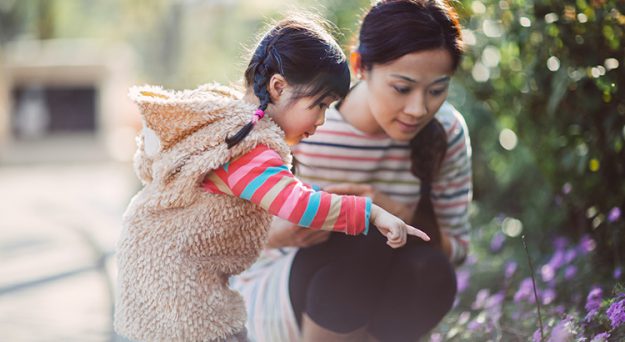How to let go of your youngest child?
mis à jour le 1 August 2016 à 16:03Pampered and coddled by the parents and often by their elders, the youngest child must eventually leave and spread his/her wings. Here's some advice from child psychiatrist and children's book author Philippe Duverger.

Sometimes referred to as 'helicopter parents' and 'tiger moms', these mothers and fathers may be overprotective of their children everywhere they go. Certainly, the world is a place more to be anxious about than expected, and information overload does not help us stay relaxed. But between over-parenting or anxious parenting (like padding the walls of the house) and education for parents, there is a suitable halfway point that can be achieved. It's not easy to find this balance, precisely because it is the last child, or the youngest of their children, that apparently needs the extra attention.
They find difficulty in storing away the stroller, the blanket, and other baby products, while for others, there is one desire: "They grow anyway, so we can get brunch on the terrace and nap secretly regardless of the short baby sleeps." Some even dream of fetching their children from college or even high school, with blissful smiles and maybe a glass of champagne in hand, congratulating themselves on a job well done. While it does sound a little ridiculous, you get the gist - overprotective parents will have to let go their youngest child's baby Converse shoes eventually.
HEALTHY SEPARATION IS ESSENTIAL
A child glued to their mother will not willingly go to others. This may generate delays and inhibitions. At school, the child may be alone at recess. The anxious link is in the mother that overprotects her child and complains of having to leave him. It's also the mother who is constantly snapping photos or filming her child to freeze the moment. Gaining independence is what allows a child to have confidence in themselves, to grow and to feel strong. They must learn to separate, as without this separation painful incidents will occur in the future.
ALLOW EXPLORATION
You have to trust the child and let them explore the world (safely, of course) in all the important stages of development. Sleeping alone, eating with a spoon, walking, adopting cleanliness and especially kindergarten entry (then middle school and eventually, college). At 8-9 years old, they can go to school, learn new skills, and go for activities alone. If this requires the purchase of a mobile phone to reassure everyone, why not? Provided he/she doesn't call you every five minutes. It is in trusting that they will develop their self-confidence. Otherwise, they may feel vulnerable and devalued, or they could adopt later behavioural issues; from endangered to experience.
IS IT HARDER WITH THE YOUNGEST?
Not necessarily. There are mother hens, who are hyperprotectrive, anxious, possessive as well as depending most on the history of each as the issue of menopause. The expectations are not the same either. The eldest embodies our hopes and dreams, while the youngest is sometimes a precious child whom we want maximum enjoyment for.
Valerie Rodrigue and Nur Syazana H.
READ MORE:
Testimony: “Now that my children are adults, I live as if I am 30.”
Testimonials: Why these mothers can't bear letting go



